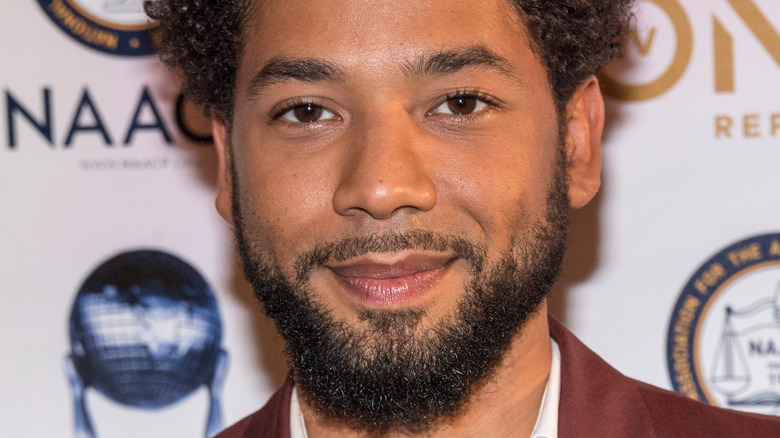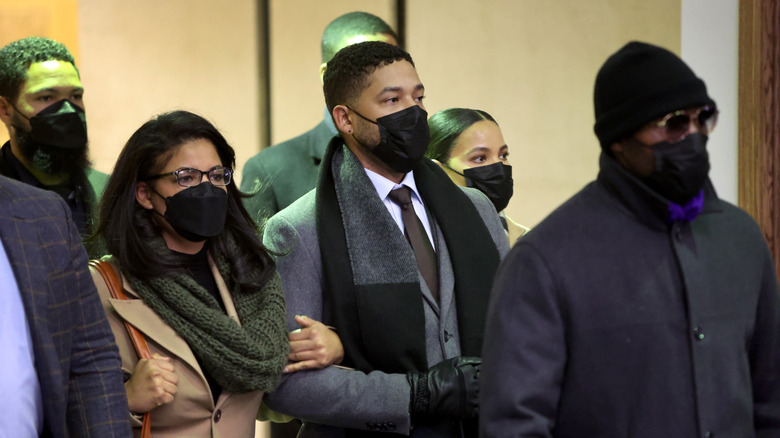Inside Jussie Smollett's Guilty Verdict
We finally have a verdict in the controversial case surrounding former "Empire" actor Jussie Smollett, who was charged in 2019 for allegedly staging a hate crime attack on himself and lying to police about it. On Thursday, December 9, a jury of six men and six women found Smollett guilty of five counts of felony disorderly conduct.
Smollett had claimed that he was attacked near his Chicago home, according to CNN, by two men who called him homophobic and racial slurs, poured bleach on him, and put a noose around his neck. This happened in the early hours, around 2 a.m., on January 29, 2019, per The Week. Later, the two men, brothers Abimbola "Bola" and Olabinjo "Ola" Osundairo, claimed Smollett had paid them $3,500 to stage the attack, being sure to capture it on surveillance video so it could go viral on social media. Smollett wanted to fake the attack, reports The New York Times, because he felt the execs at "Empire" hadn't taken a "MAGA" inscribed death threat he received seriously enough.
Smollett had been charged with six counts of felony disorderly conduct, according to The Hollywood Reporter, one for each time he lied to Chicago police about the incident. One of the six counts, based on a mid-February lie to a detective some weeks after the alleged attack, resulted in an acquittal, but he was found guilty of the other five — even despite his claim that he is innocent.
Jussie Smollett maintained his innocence, saying 'there was no hoax'
Jussie Smollett maintained his innocence on the stand, testifying that "there was no hoax," according to The Hollywood Reporter. Smollett said the two brothers who presumably attacked him were "liars," and his attorneys alleged that the brothers claimed the attack was staged in order to get a $1 million payoff from Smollett for not testifying against him. Smollett's attorney Nenye Uche said the brothers may have attacked Smollett because they wanted him to hire them, telling the jury, "These guys want to make money."
Dan Webb, prosecutors for brothers Bola and Ola Osundairo, asked Smollett why he hadn't given the Chicago police additional evidence, such as access to his medical records and a DNA sample, saying, "If [Smollett] was a true victim of a crime he would not be withholding evidence." Smollett claimed privacy concerns and mistrust of police as reasons for not sharing information with them. Smollett made his account messier by testifying that he had a sexual relationship with Bola, per The Week, which Bola denied.
Apparently, the jury didn't buy Smollett's story, instead siding with the prosecution. "Besides being against the law," Webb said, "it is just plain wrong to outright denigrate something as serious as a real hate crime and then make sure it involved words and symbols that have such historical significance in our country." Jurors believed Webb's claim that Smollett wasted the Chicago police department's time and resources, and found him guilty after deliberating for over nine hours.


